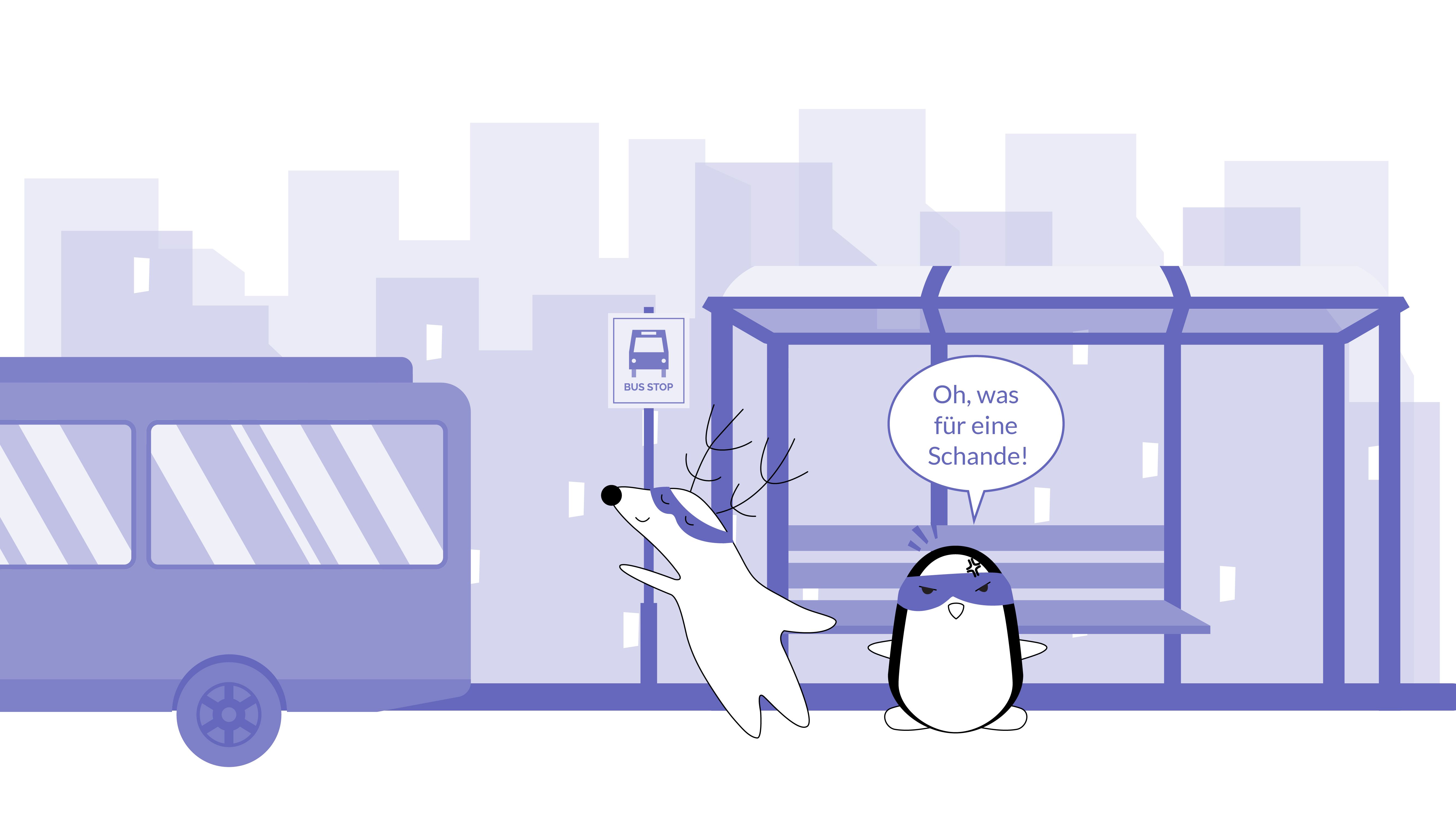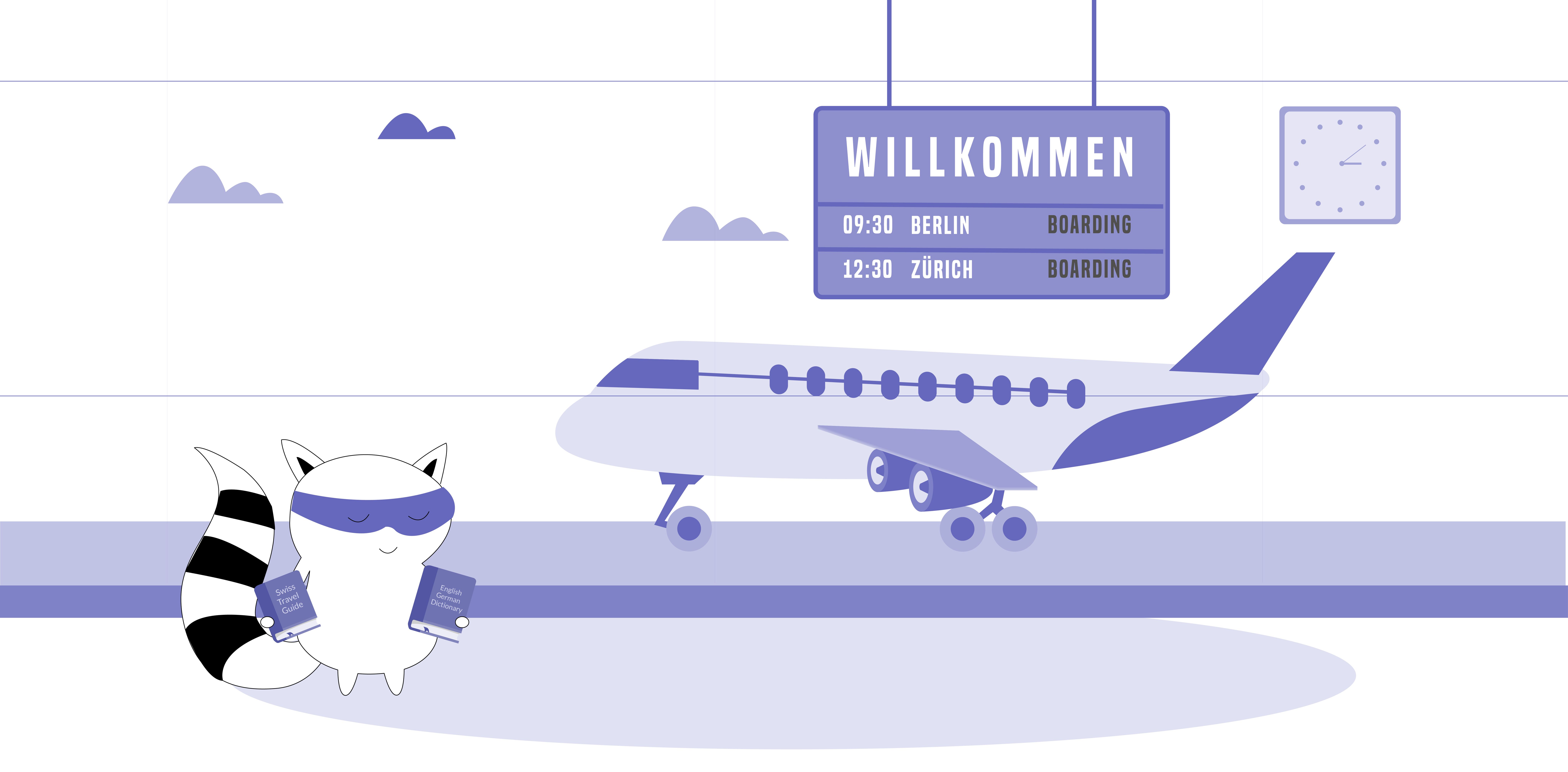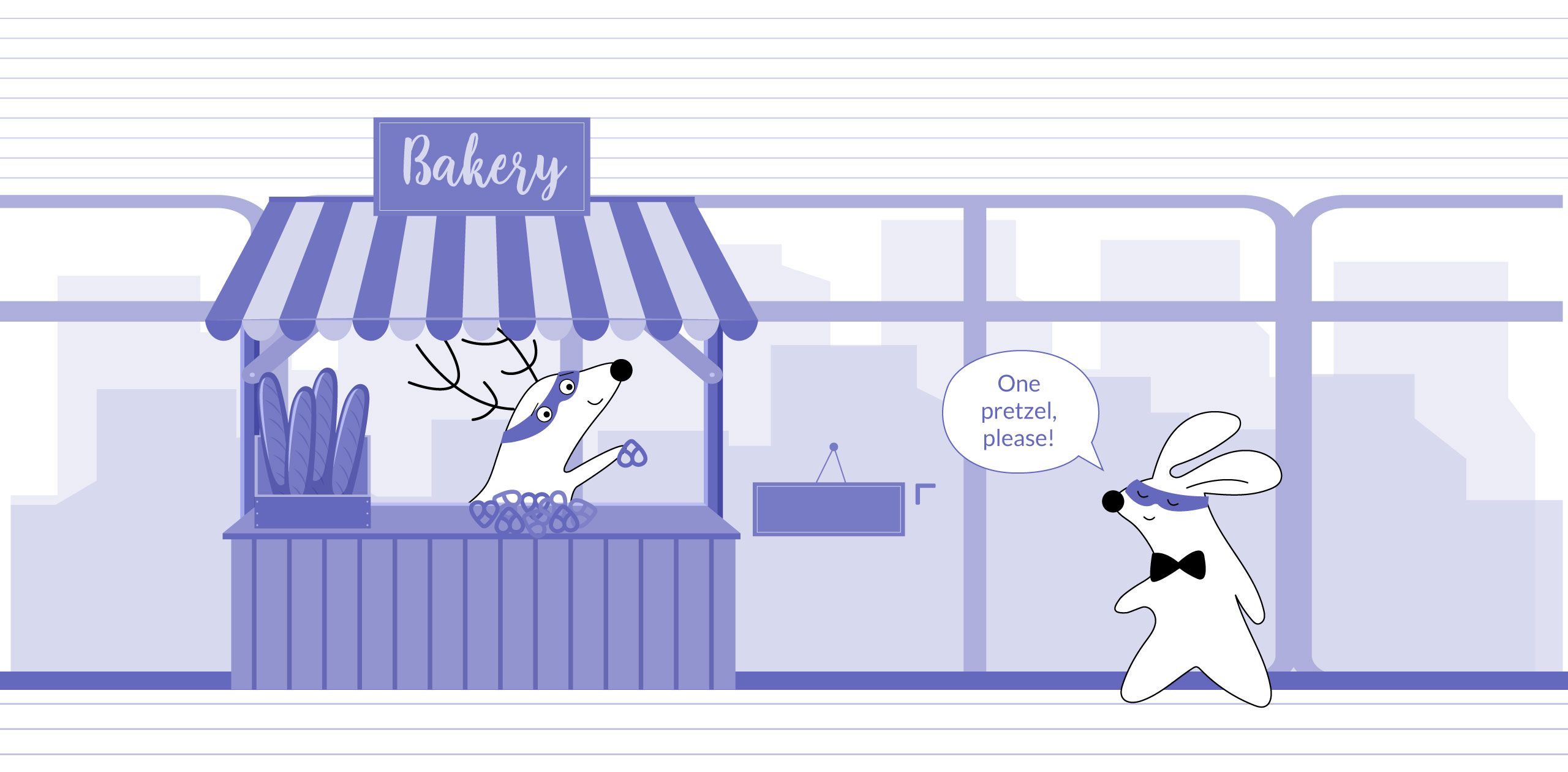
When visiting a new country, it is always polite and helpful to know some basic phrases in the foreign language the target country’s locals recognize as their native. One such handy phrase is “excuse me,” which can help you navigate through various situations while traveling to German-speaking countries or moving abroad altogether.
In German, there are several ways to say “excuse me,” depending on the context and level of formality. In this article, we explore quite a few different ways to say “excuse me” in German, including some additional information for English speakers taking German lessons.
Learn German with Langster
Entschuldigung
The most common way to say “excuse me” in German is entschuldigung. This word can be used both formally and informally, making it a versatile phrase for various situations.
It is also the most direct translation for “excuse me” in German.
German
English
Entschuldige die Verspätung.
Sorry, I am late.
Entschuldigung, wo ist der Bahnhof?
Excuse me, where is the train station?
Kann ich Sie kurz entschuldigen?
May I excuse you for a moment?
In addition to meaning “excuse me,” “entschuldigung” can also mean “sorry” or “pardon.” This makes it a helpful phrase when apologizing or asking for forgiveness.
German
English
Ich möchte mich entschuldigen.
I want to apologize.
As a bonus, adding a warning tone and a question mark to this word alone in speaking can be used to challenge someone's rude behavior.
German
English
Entschuldigen?
Excuse me?
Entschuldigen Sie
In formal situations, it is more appropriate to use the phrase Entschuldigen Sie, which translates to “excuse me” when addressing someone in a polite manner.
Depending on the level of formality, you can opt for Entschuldige bitte — informal version of “you” — or Entschuldigen Sie bitte — formal “you.” This phrase can be used with strangers or people you do not know well, such as a colleague or boss.
Choosing correctly between these two options is an excellent way to show not only your politeness but also your language skills.
German
English
Entschuldigen Sie bitte Sie eine Minute Zeit?
Excuse me please, do you have a minute?
Bitte entschuldigen Sie die Verspätung, es gab einen Unfall auf der Straße.
Please excuse the delay, there was an accident on the road.
Pardon
Another way to say “excuse me” in German is pardon. This phrase is a bit more formal and can be used in situations where you need to interrupt someone or ask for forgiveness.
It is often used when trying to get someone’s attention or apologizing for a mistake.
German
English
Pardon, darf ich hier sitzen?
Excuse me, may I sit here?

Sorry
The English word “sorry” has also made its way into common German vocabulary — and many other languages — as another way to say “excuse me.” This phrase is casual and can be used with friends or in other informal situations.
It is also widely recognized by native German speakers, making it a safe alternative when you are unsure of the best way to apologize.
German
English
Sorry, ich habe vergessen dich anzurufen.
Sorry, I forgot to call you.
Verzeihung
Similar to pardon, the word verzeihung is used as a more formal way to say “excuse me.” It conveys a level of respect and politeness, making it appropriate for situations where you do not want to come across as too casual.
German
English
Verzeihung, haben Sie eine Wegbeschreibung?
Excuse me, do you have directions?
Könnten Sie mir bitte verzeihen? Das war keine Absicht.
Could you please forgive me? That was not intentional.
Das habe ich nicht so gemeint
While we’re at it — the phrase Das habe ich nicht so gemeint may also come in handy when trying to apologize for a misunderstanding. It translates to “I did not mean it like that” and can be used as a more elaborate way of apologizing.
German
English
Es tut mir Leid, das habe ich nicht so gemeint.
I’m sorry, I did not mean it like that.
Das habe ich nicht so gemeint, können wir es nochmal versuchen?
I didn’t mean it like that, can we try again?
Bitte verzeih mir / Kannst du mir verzeihen?
These two phrases are less commonly used but still important to know for those who want to learn German beyond the basics.
They both mean “please forgive me” and can be used in situations where you need to apologize for causing minor inconveniences — as well as beg for forgiveness after making a horrible mistake.
German
English
Bitte verzeih mir, ich hätte nicht so reagieren dürfen.
Please forgive me, I should not have reacted that way.
Kannst du mir verzeihen? Ich habe dir Unrecht getan.
Can you forgive me? I have wronged you.

Schade
Although not a direct translation of “excuse me,” the word schade is another useful phrase to know when learning German.
It can be used to express disappointment or regret, similar to saying “what a shame” in English.
German
English
Schade, dass du keine Zeit hast.
What a shame you don’t have time.
Das ist wirklich schade!
That’s really too bad!
Conversely, a sarcastic, exaggerated Schade will mean that you are not sorry at all.
Mein Beileid
If you find yourself in a situation where you need to express sympathy or condolences, the phrase mein Beileid can help you out. It is commonly used when offering condolences for someone’s loss or expressing sorrow.
German
English
Mein aufrichtiges Beileid.
My sincerest condolences.
Mein Beileid für deinen Verlust.
My condolences for your loss.
Ich möchte dir mein tiefstes Beileid aussprechen.
I would like to offer my deepest condolences.
Tut mir Leid
Lastly, we have the phrase tut mir leid, which literally translates to “does me harm.”
This phrase is commonly used as a way to say “I’m sorry” or “my apologies” and express regret or sympathy.
German
English
Es tut mir Leid, dass ich dich nicht besuchen konnte.
I’m sorry I couldn’t come visit you.
Tut mir Leid für deine Verluste.
My condolences for your losses.

A Context Note for German Language Learners
As with any language, it is important to understand the context and appropriate use of phrases before attempting to use them.
In German culture, it is considered rude to interrupt someone without saying “excuse me” first. It is also polite to use the formal versions of “excuse me” when addressing strangers or people in positions of authority.
It is also worth noting that the word entschuldigung can be shortened to tschuldigung in colloquial speech, and the phrase tut mir leid can be shortened to a simple sorry.
However, these shortened versions are more commonly used among friends and family than in formal settings.
The Bottom Line

Overall, having a good understanding of different ways to say “excuse me” in German will not only help you navigate social situations with ease but also show native speakers that you have respect for their language and customs.
So, whether you find yourself accidentally stepping on someone's toes, needing to get someone’s attention, or expressing sympathy, now you have a variety of phrases to choose from in your German language repertoire. For more examples in real-life contexts, download our Langster app.
Now, go out there and confidently say “Excuse me,” like a native speaker! Viel Glück!
Learn German with Langster









